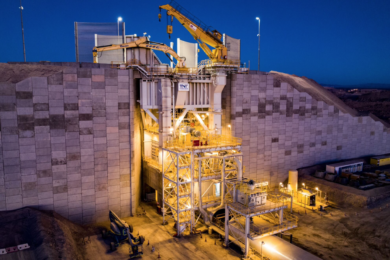Sustainability through Resource Conservation and Recycling (SRCR ’09) sponsored by CSense, will be held at the beautiful Vineyard Hotel, Cape Town, South Africa, in April, immediately preceding Bio and Hydrometallurgy ’09 and Toxic Metals ’09 at the same venue. The rapid growth of the world economy is straining the sustainable use of natural resources due to modern society’s extensive use of metals, materials and products. An astute and conscious application and use of metals, materials and products supported by the reuse and recycling of these materials and end-of-life products is imperative to the preservation of the Earth’s resources. The realisation of the ambitions of sustainable use of metals, materials and resources demands that the different disciplines of the material and consumer product system are connected and harmonised.
This conference discusses all aspects of material and metal usage by considering for example (but not exclusively):
– Acid Mine Drainage
– Clean Technology (smelting, energy recovery, hydrometallurgical, etc.)
– Coal Wastes
– Effluent Treatment (biological and chemical methods for water purification)
– Energy Recovery
– Environmental Impact Assessment Methodologies (LCA, metrics for sustainability, LCI, etc.)
– Industrial Applications (novel technology, new methods, breakthrough technology, etc.)
– Legislation (REACH, Basel, Stockholm, etc.)
– Process Control (to monitor and optimize environmental performance of plants, unit operations, furnaces)
– Processing of Industrial Wastes (slags, chemical, flue dusts, sludges, bottom ashes, etc.)
– Recycling of Post Consumer Materials (car recycling, waste electric and electronic equipment, plastics, paper)
– Tailings Disposal at mine sites
– Recycling Systems (monitoring, take-back systems, etc.)
– Recycling Technology (separation, automatic sorting, sensors, smelting, etc.)
– Sustainability (from an industrial as well as consumer point of view)
– System and other models for system optimization and Sustainability prediction
Authors wishing to present a paper at the conference should submit a short abstract to [email protected].
Papers presented will be published in a Proceedings CD-ROM, but authors will be invited to submit their work for peer-review and publication in a special issue of Minerals Engineering journal, the mineral processing journal with the highest number of citations in 2007. Full details can be found at www.min-eng.com/srcr09.
The fourth International Symposium on Bio- & Hydrometallurgy (BioHydromet 09), organised by MEI, will immediately follow Sustainability through Resource Conservation ’09, at the same venue. BioHydromet 09 will focus on the latest developments in:
– Hydrometallurgy: leaching, solvent extraction and ion-exchange;
– Biotechnology: Development and uses of bacteria and other biological agents in hydrometallurgy, flotation, solid-liquid separation, remediation etc.
The 1st International Symposium on Treatment of Mining Residues Containing Toxic Minor Metals (Toxic Metals 09), organised by MEI, will focus on the the toxic metals that can affect human health. Some toxic metal anions,
including arsenic, antimony, selenium and tellurium are by-products of the mining and processing of major metal ores, such as those of copper, lead and zinc.
These by-product metals can find their way into soils and ground water. Arsenic, for instance, occurs naturally in many complex mineral rocks, and in this form is relatively harmless, but when exposed to air and water, it becomes soluble and toxic to plants, animals and humans. Both mining and drilling wells for drinking water can expose the arsenic and turn it into two soluble forms, arsenate and arsenite.
This conference will review the latest methods that have been developed to remove these elements from aqueous systems, and ameliorate their toxicity, either by their recovery or neutralisation, with particular emphasis on arsenic, antimony, selenium and tellurium.









